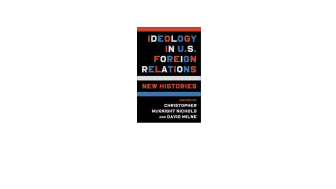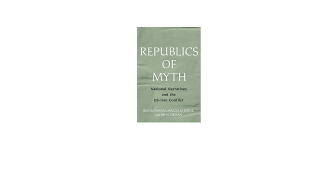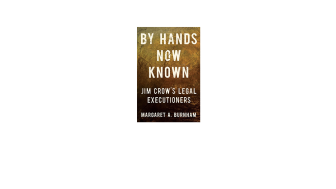Eric Arnesen
Former Fellow
Professional Affiliation
Professor of History, The George Washington University. Director, National History Center of the American Historical Association.
Expert Bio
For the past generation, I have specialized as a scholar in the history of race and labor in the United States. Much of my scholarly work has been in the area of African-American labor history, the history of working-class race relations, racial ideology, and the politics of civil rights. I have written, edited, or co-edited seven books. My first monograph, Waterfront Workers of New Orleans: Race, Class, and Politics, 1863-1923, won the 1991 John H. Dunning Prize in American History from the American Historical Association; my second monograph, Brotherhoods of Color: Black Railroad Workers and the Struggle for Equality, received the 2001 Wesley-Logan Prize in Diaspora History from the American Historical Association and the Association for the Study of Afro-American Life and History. In addition, my articles and review essays have appeared or will appear shortly in the American Historical Review, Labor: Studies in Working-Class History of the Americas, The Journal of the Historical Society, International Review of Social History, Labor History, International Labor and Working-Class History, Radical History Review, Labour/Le Travail, Reviews in American History, Social History, Dissent, and American Communist History. Popular reviews, review essays, and essays have appeared in the Chicago Tribune, the Boston Globe, the New Republic, the Nation, Christian Century, the Chicago Tribune Sunday Magazine, Historically Speaking , Inside Higher Ed, and the Chronicle of Higher Education On-Line. In 2005, I was awarded the James Friend Memorial Award for Literary Criticism from the Society of Midland Authors for “distinguished literary criticism in the Chicago Tribune.” In recent years, I have served as the treasurer of Immigration and Ethnic History (2006-2009) and as president of The Historical Society. Finally, I serve as an associate editor for the Journal of the Historical Society and Labor: Studies in Working-Class History of the Americas, contributing editor to Historically Speaking, and as a board member of Cobblestone, a children’s history magazine.
Education
B.A. (1980) magna cum laude, Wesleyan University; M.A. (1984) Afro-American Studies, Yale University; Ph.D. (1986) History, Yale University
Wilson Center Project
A. Philip Randolph: Civil Rights, Labor, and the New Black Politics
Project Summary
This biographical project explores the intensely political life of A. Philip Randolph, an African-American labor and civil rights activist whose years of political engagement spanned from the 1910s to the 1960s. An influential orator, passionate journalist, and committed activist who led the Brotherhood of Sleeping Car Porters, the National Negro Congress, the March on Washington Movement, and the Negro American Labor Council, Randolph was a central figure in the 20th-century anti-communist left whose legacy of activism proved crucial to the formation of the modern civil rights movement. The project critically reconstructs Randolph’s hostility to black nationalism, Stalinism, and political gradualism and his advocacy of a vision of civil rights requiring economic equality.
Randolph’s life story is part and parcel of two historical narratives – that of 20th century American labor and that of the emergence and triumph of the modern civil rights. It is also a story of the connections between an earlier labor-based civil rights tradition and a later church- and student-based tradition and of the role of politics – both grassroots and national – in the framing of agendas, the structuring of social movements, and the forging of coalitions. Randolph was, in many ways, a living link between an older grassroots civil rights tradition and the emerging civil rights movement of the late 1950s and 1960s who kept alive the critique of racial inequality in the labor market.
Despite the failure to accomplish many of his specific goals, Randolph had witnessed -- indeed, he had contributed centrally to -- nothing less than a revolution in labor and race relations in America. This biographical book project, however, does not treat Randolph as a young firebrand-turned-elder statesman of civil rights or as a heroic -- even towering -- figure armed largely with his moral authority. Rather, it presents an original account of the contours and evolution of Randolph’s political thought and behavior from his days as an editor of the Messenger and proponent of the “New Negro” in the late 1910s and early 1920s to his advocacy of a “Freedom Budget” in the mid- and late 1960s.
Major Publications
- Editor, The Black Worker: Race, Labor, and Civil Rights since Emancipation (University of Illinois Press, 2007).
- Brotherhoods of Color: Black Railroad Workers and the Struggle for Equality (Harvard University Press, 2001).
- Black Protest and the Great Migration: A Brief History with Documents (Bedford Series in History & Culture, Bedford/St. Martin’s Press, 2002).
- Waterfront Workers of New Orleans: Race, Class, and Politics, 1863-1923 (Oxford University Press, 1991; University of Illinois Press, 1994 paperback edition).
- “Reconsidering the ‘Long Civil Rights Movement,’” Historically Speaking X, No. 2 (April 2009).
- “No ‘Graver Danger’: Black Anticommunism, the Communist Party, and the Race Question” and “The Red and the Black: Reflections on the Responses to ‘No Graver Danger,’” Labor: Studies in Working-Class History of the Americas 3, No. 4 (Winter 2006).
- “Passion and Politics: Race and the Writing of Working-Class History,” The Journal of the Historical Society 6, No. 3 (Fall 2006).
- “Whiteness and the Historians’ Imagination,” International Labor and Working-Class History No. 60 (Fall 2001).
Insight & Analysis by Eric Arnesen
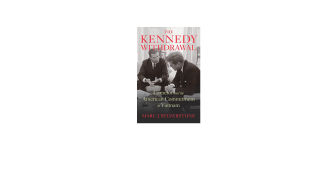
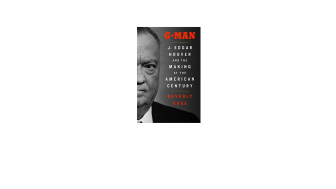

- Past event
- History
New Scholarship on US Intelligence History
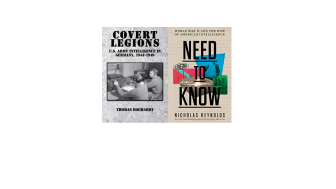
- Past event
- Gender Equality
On Account of Sex: Ruth Bader Ginsburg and the Making of Gender Equality Law

